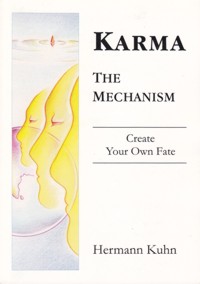
Vipako(a)nubhavah (21)
All activity and all passionate negative emotions - anger, pride, the intention to deceive others and greed (and also error, confusion, negligence etc.) - attract karma to our interactive karmic field.
A great part of this karma is discarded immediately. Thus all actions not influenced by anger, pride, the intention to deceive others, greed etc. have only short-lived, fleeting effects. This 'fleeting' karma usually manifests right after we acquired it.
Yet all action we plan, perform, instigate or silently consent to while maintaining strong negative emotions, often takes on a latent, inactive state and shows its effect at a later time only. Since strong negative emotions cause an equally strong karmic attachment to the particular sphere of life we manifest the action in, this often cannot manifest in adequate strength immediately after we acquired it. It activates only when conditions arise that are conducive for its manifestation.
Latent karma is the mechanism that directs our attention to unresolved themes of life as soon as the conditions for a renewed manifestation of the respective themes arise again.
We can easily observe the presence of latent karma and the way it activates in someone who just quit smoking. Though he is abstinent, his longing for a drag gets triggered each time someone in his vicinity lights up. He has a latent readiness to react to this stimulus that often manifests in form of intense aggression towards the one who dares to smoke. The emotional attachment (latent karma) still present in the new 'non-smoker' breaks out as soon as supportive conditions arise.
In contrast to this a 'real' non-smoker may feel annoyed at the infringement on his quality of breathing, but the smell of a lit cigarette would not stimulate him to light up as well. He has no latent karma of this kind and thus the stimulus passes without initiating action.
If supportive conditions do not arise, the respective karma will manifest at the end of the maximum period for which it can remain bound to our consciousness (see sutra 14 to 17).
We experience the activation of (latent) karma as the rise of strong or mild emotions, as motivation and drive for unresolved activities, as confrontation with situations and persons we learn from etc.
How intensely karma manifests depends solely on how passionately we originally desired the respective action or situation. All other circumstances of an activation of karma are determined by the stage of development we presently experience, our actual relation to time, space and surroundings and our current conditioning.
 Hermann Kuhn
Hermann Kuhn
